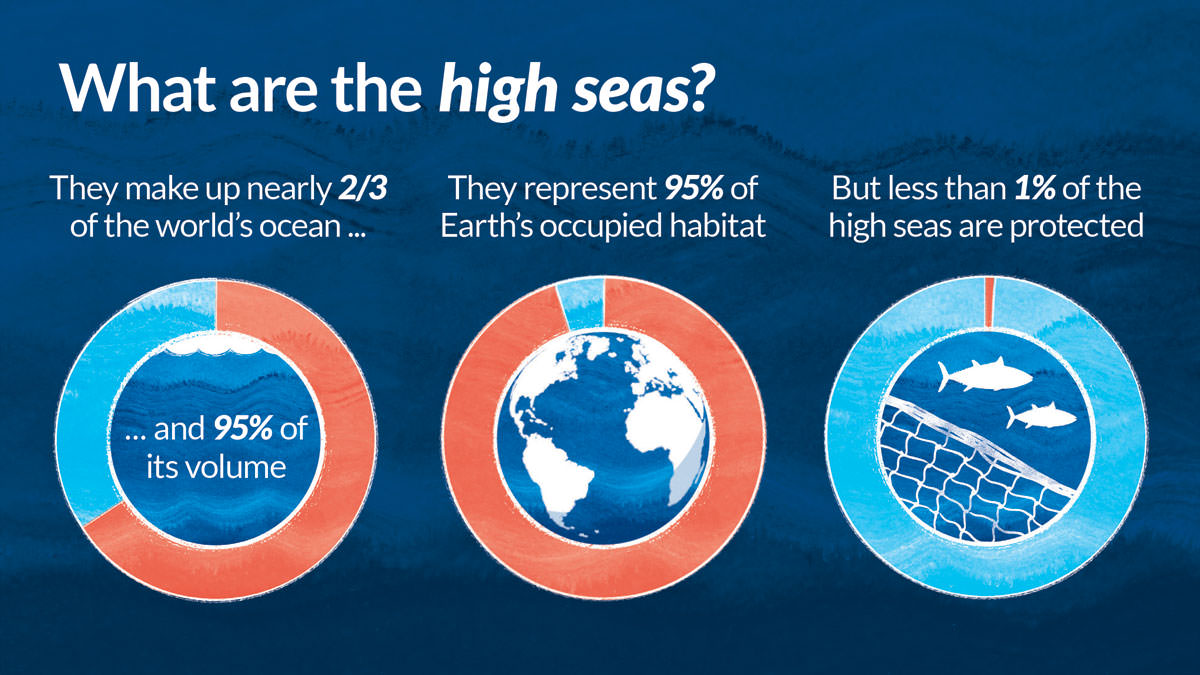UNITED NATIONS HIGH SEAS TREATY
CONTEXT
Negotiations involving 168 countries including European Union to agree on a UN treaty for protecting oceans failed on Saturday in New York. The agreement intends for conserving marine life on the high seas which lie outside the exclusive jurisdiction of individual countries
AIM
To protect and manage the high seas –parts of the ocean beyond national jurisdictions
ABOUT
It is also referred to as Paris Agreement for the ocean
The proposed treaty concerns the ocean existing beyond the Exclusive Economic Zones which extend from the coastlines of nations up to around 200 nautical miles or 370 km into the seawaters beyond that are known as open seas or high seas.
The treaty was to be negotiated under the United Nations Convention on Laws of the Sea (UNCLOS) OF 1982 which governs the rights of countries regarding marine resources. A UN resolution in 2017 had decided to rectify the treaty by 2022.

CONCERNS OF TREATY
- Establishing marine protected areas to put limits on certain activities
- Environment Impact Assessments
- Clearances for the sustainability of works
- Financial support to countries
- Sharing of scientific knowledge
The International Union for Conservation of Nature (IUCN) has said binding agreements are needed for this treaty to be effective.
UNCLOS
- It regulates the conduct of actors on the high seas.
- It led to the establishment of territorial sea boundaries 22 km offshore, deciding the region up to which countries could claim full sovereign territorial rights, as well as the 200 nautical miles EEZ limit.
- It also created the International Seabed Authority and other conflict resolution mechanisms.
But a treaty dedicated to protecting ocean health does not exist as of now. Every country has the right to access the open seas, resulting in large–scale drilling and trawling operations.
WHY TREATY IS NEEDED URGENTLY
- Ocean warming remains a major threat
- The effects of ocean warming include sea level rise due to thermal expansion, coral bleaching, accelerated melting of Earth's major ice sheets, intensified hurricanes, and changes in ocean health and biochemistry.
- Excessive fishing has increased manifold over the years and a third of species such as sharks and rays are at the risk of extinction




